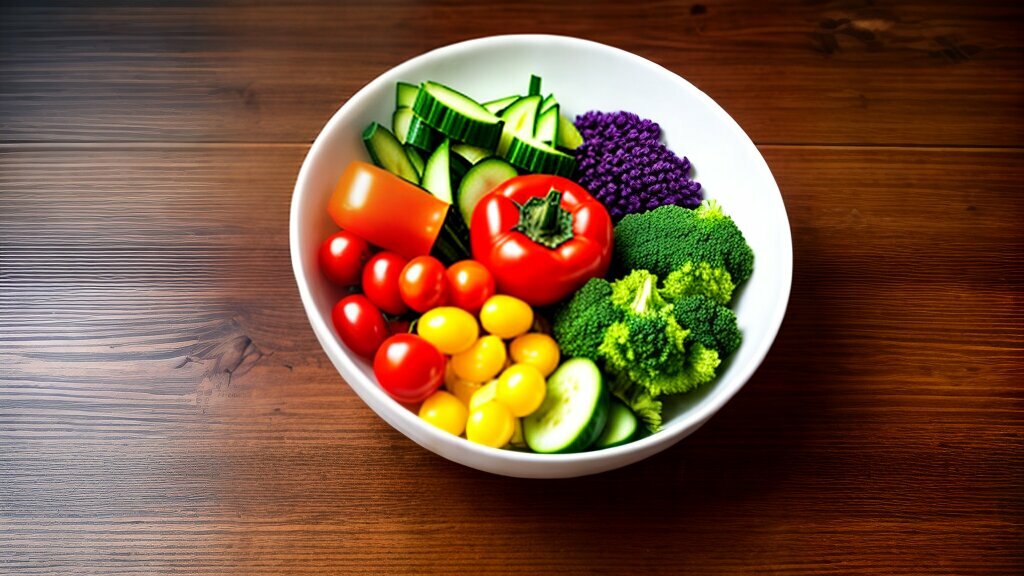Welcome to the world of clean eating habits – a way of life that can help you achieve a healthier and happier you. Clean eating habits involve consuming whole, nutrient-dense foods and avoiding processed and artificial ingredients. By following a clean eating diet, you can improve your overall well-being, boost your energy, and reduce the risk of chronic diseases.
Australian lifestyle can be hectic and fast-paced, often making it challenging to maintain healthy eating habits. However, incorporating clean eating principles into your daily routine can be achieved with some simple adjustments and planning. Eating clean is not about depriving yourself or counting calories, but about embracing a balanced and natural diet that nourishes your body.
Key Takeaways:
- Clean eating habits involve consuming whole, nutrient-dense foods and avoiding processed and artificial ingredients.
- Embracing clean eating can improve your overall well-being, boost your energy, and reduce the risk of chronic diseases.
- Australian lifestyle can be hectic and fast-paced, but incorporating clean eating principles into your daily routine can be achieved with some simple adjustments and planning.
Understanding Clean Eating Habits
When it comes to clean eating habits, the focus is on consuming whole foods that are minimally processed and free from additives and preservatives. These foods are nutrient-dense, meaning they contain a high concentration of essential vitamins and minerals that your body needs to function optimally.
Whole foods include fresh fruits and vegetables, whole grains, lean proteins, and healthy fats. Organic produce, which is grown without synthetic pesticides or fertilizers, is a popular choice among those who embrace clean eating habits.
Avoiding processed foods is a key component of clean eating. Processed foods often contain high levels of sugar, unhealthy fats, and artificial ingredients that can have negative effects on your health. Instead, clean eaters opt for natural, whole foods that provide sustained energy and promote overall well-being.
Why Whole Foods Matter
Whole foods are packed with nutrients that your body needs to thrive. They are rich in fiber, which promotes good digestion and helps you feel full for longer periods of time. Whole grains, for example, contain complex carbohydrates that provide sustained energy throughout the day.
Lean proteins, such as chicken, fish, and beans, provide essential amino acids that support muscle growth and repair. Healthy fats, such as those found in nuts and avocados, are essential for brain function and maintaining healthy skin and hair.
By focusing on whole foods, you can ensure that your diet is nutritious and balanced, which can lead to better overall health and well-being.
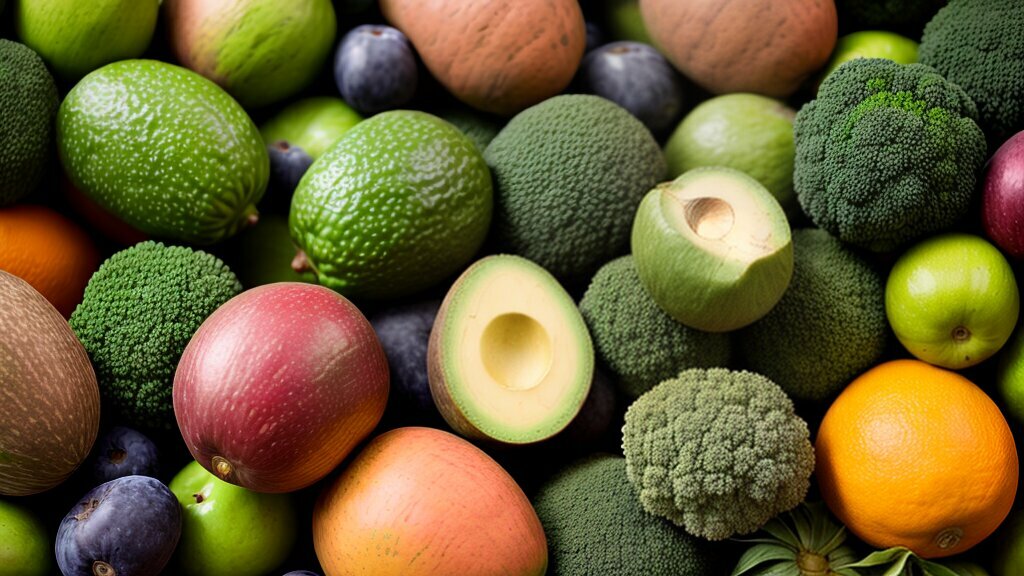
“Clean eating is not a diet; it’s a lifestyle. It’s about making sustainable food choices that support your health and well-being.”
Tips for Incorporating Clean Eating Habits into Your Daily Routine
Incorporating clean eating habits into your daily routine may seem daunting at first, but it doesn’t have to be. By making small changes to your diet and lifestyle, you can gradually shift towards a healthier and more balanced way of eating. Here are some practical tips to get you started:
1. Plan Your Meals
Planning your meals in advance can help you make more mindful food choices and avoid the temptation to rely on processed or convenience foods. Take some time each week to plan out your meals and snacks, making sure to include plenty of fresh fruits, vegetables, whole grains, and lean protein sources.
2. Read Food Labels
Reading food labels can help you make informed choices about the foods you eat. Look for products that are low in saturated fat, added sugar, and sodium, and opt for whole foods and natural ingredients whenever possible.
3. Make Mindful Choices When Dining Out
Dining out doesn’t have to mean sacrificing your clean eating habits. Look for restaurants that offer fresh, whole-food options, and don’t be afraid to ask for customized dishes that meet your dietary needs.
4. Stay Hydrated
Drinking plenty of water throughout the day can help you stay hydrated and keep your body functioning at its best. Aim for at least eight glasses of water per day, and try to limit your intake of sugary beverages like soda and juice.
5. Incorporate Physical Activity
Regular physical activity is an essential part of a healthy lifestyle. Try to incorporate at least 30 minutes of moderate exercise into your daily routine, whether it’s a brisk walk, a yoga class, or a workout at the gym.
6. Focus on Nutrient-Dense Foods
Nutrient-dense foods are those that provide a high level of vitamins, minerals, and other essential nutrients without a lot of added sugars, fats, or sodium. Choose whole, unprocessed foods like fresh fruits and vegetables, whole grains, nuts, and lean protein sources to ensure you’re getting the nutrients your body needs.
By incorporating these tips into your daily routine, you’ll be well on your way to embracing clean eating habits and a healthier lifestyle. Remember to be patient and kind to yourself as you make these changes, and don’t hesitate to reach out to a nutritionist or specialist for support and guidance along the way.
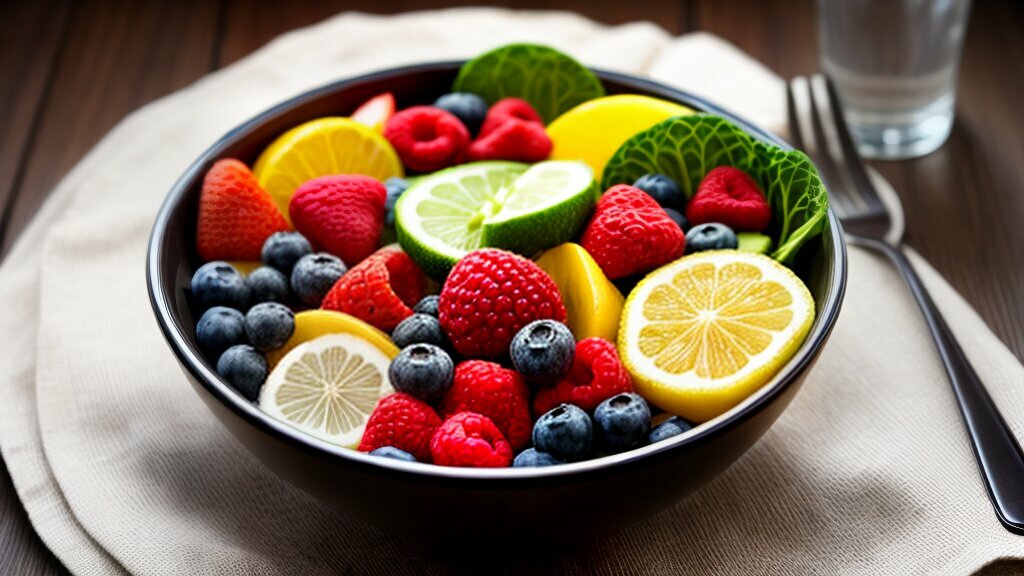
The Role of Mindfulness in Clean Eating
When it comes to clean eating, mindfulness plays a crucial role in making healthier choices and improving overall well-being. Mindful eating involves paying attention to the present moment, engaging all your senses, and fully experiencing the food you consume. By being present and mindful, you can make more conscious choices and avoid mindless snacking or overeating.
The benefits of practicing mindfulness during meals extend beyond just better food choices. It can also improve digestion, reduce stress, and enhance your overall relationship with food. Mindful eating encourages you to appreciate the taste, texture, and aroma of the food, rather than simply seeing it as fuel for your body.
One way to practice mindful eating is to start by taking a few deep breaths before your meal, acknowledging and expressing gratitude for the food in front of you. Slow down your eating, savoring each bite, and taking breaks in between bites to check in with your body’s hunger and fullness signals. Avoid distractions like screens or work and focus solely on enjoying your food.

Another way to incorporate mindfulness into your clean eating habits is to practice mindful food preparation. Take time to prepare meals with intention, focusing on the quality and freshness of the ingredients. Engage your senses while cooking, smelling, and tasting your food along the way. By mindfully preparing your meals, you can better understand the nutritional value of the foods you consume and appreciate the effort that goes into creating them.
By embracing mindfulness in your clean eating journey, you can cultivate a healthier and happier relationship with food. By being present and focused on your food, you can make better choices, improve digestion, and enhance overall well-being.
Clean Eating Recipes for a Nutritious Meal Plan
Are you looking for clean eating recipes that are both nutritious and delicious? Look no further! We’ve got you covered with some easy-to-make meal ideas using whole foods and organic ingredients. These recipes are perfect for those who want to incorporate clean eating habits into their daily routine without sacrificing flavor.
| Recipe | Description |
|---|---|
| Quinoa Salad | This salad is packed with protein and essential nutrients. Combine quinoa, cherry tomatoes, cucumber, onion, and feta cheese in a large bowl. Dress with olive oil and lemon juice. Serve chilled. |
| Roasted Vegetable Medley | A colorful and flavorful mix of roasted vegetables that is perfect as a side dish or a main course. Chop up your favorite veggies (such as carrots, zucchini, eggplant, and bell peppers) and toss with olive oil and fresh herbs. Roast in the oven at 400°F for 20-25 minutes. |
| Grilled Salmon with Asparagus | This dish is rich in omega-3 fatty acids and essential nutrients. Marinate salmon fillets in lemon juice, garlic, and herbs. Grill for 5-7 minutes on each side or until cooked to your liking. Serve with grilled asparagus. |
These recipes are just a starting point – feel free to experiment with different ingredients and flavors to make them your own. Remember, clean eating doesn’t have to be boring or restrictive. With a little creativity and a focus on whole, nutrient-dense foods, you can enjoy delicious and satisfying meals every day.
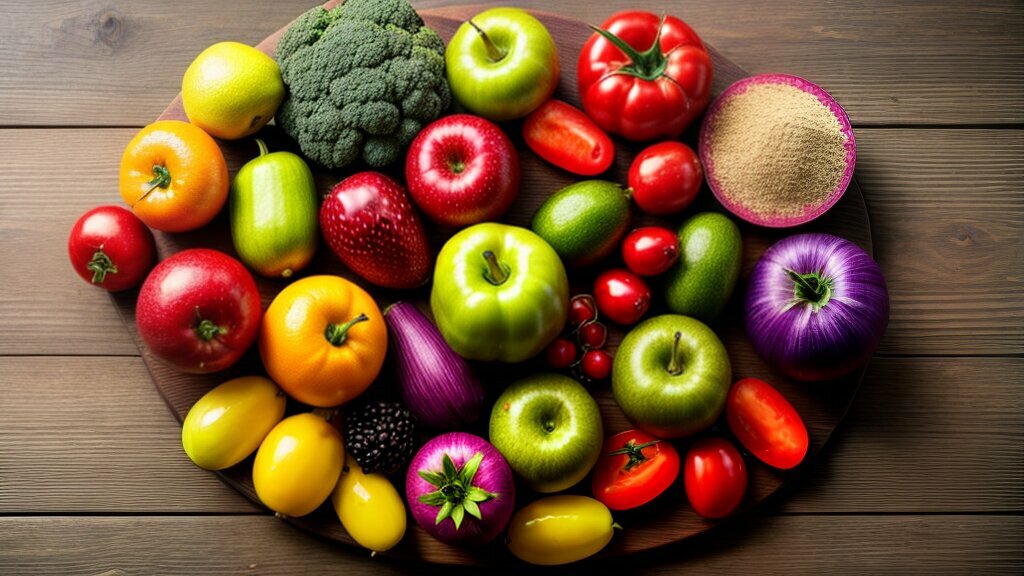
Overcoming Challenges and Sticking to Clean Eating Habits
Clean eating habits can be a challenge to maintain, especially with busy schedules and tempting convenience foods. However, with the right strategies and mindset, it is possible to overcome these obstacles and stick to a healthy, balanced diet.
One common challenge is finding the time and motivation to prepare meals at home. Meal planning can be a helpful tool in this regard, allowing you to map out your meals for the week and ensure that you have the necessary ingredients on hand. Try setting aside a few hours on the weekends to prep ingredients or cook meals in advance, so you can grab-and-go during the week.
Another challenge is navigating social situations that involve food, such as dining out or attending parties. In these situations, it’s important to be prepared and plan ahead. Check out menus in advance and look for healthy options, and consider bringing a dish to share that aligns with your clean eating habits. Remember, one indulgence won’t derail your progress, so allow yourself the occasional treat without guilt.
Finally, it’s important to maintain a positive mindset and attitude towards clean eating. This is a lifestyle change, not a quick fix or temporary diet. Focus on the benefits of clean eating, such as improved energy and overall well-being, and celebrate your progress along the way. Surround yourself with like-minded individuals who support your goals and can offer encouragement and motivation.
Remember, sticking to clean eating habits may take time and effort, but the rewards are well worth it. With dedication and a positive attitude, you can embrace a healthier, more balanced lifestyle for years to come.

Image Description: A woman holding a plate of fruits and vegetables, with a gym in the background.
Clean Eating Habits for Different Dietary Preferences
Adopting a clean eating lifestyle doesn’t mean you have to give up your dietary preferences. Whether you follow a vegetarian, vegan, or gluten-free diet, you can still embrace clean eating habits and maintain a healthy lifestyle. Here are some tips and suggestions:
Vegetarian
If you follow a vegetarian diet, you can still enjoy a wide variety of clean eating foods, such as fruits, vegetables, legumes, whole grains, and nuts and seeds. To ensure you’re getting enough protein, include sources such as tofu, tempeh, and plant-based protein powders in your meals. You can also experiment with meatless alternatives, such as veggie burgers and meatless meatballs.
| Sample Meal Plan | |
|---|---|
| Breakfast: | Scrambled tofu with spinach and whole grain toast |
| Lunch: | Quinoa salad with roasted vegetables and chickpeas |
| Dinner: | Veggie stir-fry with brown rice |
Vegan
A vegan diet eliminates all animal products, but there are still plenty of clean eating options available. Focus on plant-based sources of protein such as lentils, beans, and tempeh, and incorporate healthy fats from sources such as avocado and nuts. Experiment with different grains and vegetables to keep your meals interesting and flavorful.
| Sample Meal Plan | |
|---|---|
| Breakfast: | Smoothie bowl with berries, spinach, and almond butter |
| Lunch: | Lentil soup with whole grain bread |
| Dinner: | Grilled tempeh with roasted vegetables and quinoa |
Gluten-Free
A gluten-free diet eliminates all sources of gluten, a protein found in wheat, barley, and rye. Avoiding gluten can be a challenge when it comes to processed foods, but clean eating is a great way to stick to a gluten-free diet while ensuring you’re still getting all the necessary nutrients. Focus on whole, unprocessed foods such as fruits, vegetables, lean proteins, and gluten-free grains such as quinoa and brown rice.
| Sample Meal Plan | |
|---|---|
| Breakfast: | Gluten-free oatmeal with berries and almond milk |
| Lunch: | Grilled chicken salad with mixed greens and gluten-free croutons |
| Dinner: | Baked salmon with quinoa and roasted vegetables |
Remember, clean eating is all about making mindful food choices and focusing on whole, nutrient-dense foods, regardless of your dietary preferences. With a little creativity and experimentation, you can enjoy delicious and nutritious meals while maintaining a healthy lifestyle.
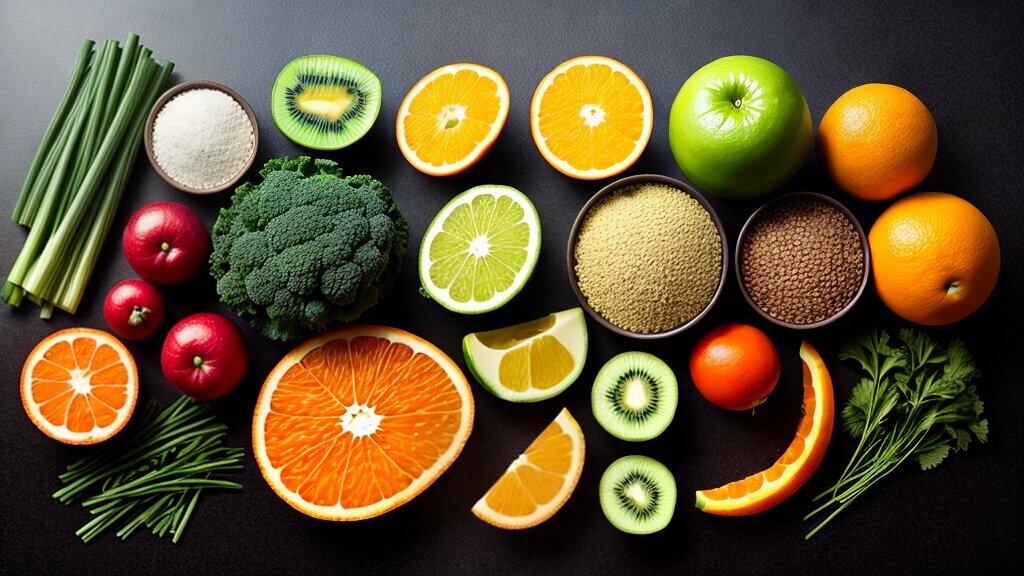
Conclusion
Clean eating habits are a crucial aspect of maintaining a healthy and balanced lifestyle. By embracing whole foods, organic produce, and mindful choices, you can improve your nutrition and overall well-being. Remember to plan your meals, read food labels, and make regular physical activity a part of your daily routine.
It’s essential to practice mindfulness when it comes to eating. Being present and engaged in the eating experience can lead to better food choices and improved digestion. Try incorporating our suggested tips for mindful eating into your daily routine to reap the benefits of clean eating habits fully.
To Summarize:
Our article has covered the significance of clean eating habits and how they can be incorporated into daily routines. We’ve explored the benefits of whole foods and organic produce, offered tips for meal planning and mindful eating, and provided a selection of clean eating recipes to try.
Challenges may arise when trying to stick to clean eating habits, but with our suggestions, you can overcome them and maintain a balanced diet and healthy lifestyle. Even if you follow a vegetarian, vegan, or gluten-free diet, there are ways to adapt clean eating habits to meet your nutritional needs.
In conclusion, embracing clean eating habits is a valuable investment in your health and overall well-being. Through mindful food choices and regular physical activity, you can achieve a happier and healthier life.
FAQ
Q: What are clean eating habits?
A: Clean eating habits involve consuming whole foods and avoiding processed ingredients. It focuses on choosing nutrient-dense foods and making mindful choices for a healthier lifestyle.
Q: Why are clean eating habits important?
A: Clean eating habits are important because they provide improved nutrition, overall well-being, and a balanced diet. They can help maintain a healthier lifestyle and promote better physical and mental health.
Q: How can I incorporate clean eating habits into my daily routine?
A: You can incorporate clean eating habits into your daily routine by meal planning, reading food labels, making mindful choices when dining out, engaging in regular physical activity, and staying hydrated.
Q: What role does mindfulness play in clean eating?
A: Mindfulness plays a crucial role in clean eating as it helps in making better food choices and improves digestion. Practicing mindful eating can enhance the overall eating experience and contribute to overall well-being.
Q: Can you provide clean eating recipes for a nutritious meal plan?
A: Yes, we have a selection of clean eating recipes available that you can incorporate into your meal plan. These recipes feature nutritious and delicious meal ideas using whole foods and organic ingredients.
Q: How do I overcome challenges and stick to clean eating habits?
A: Overcoming challenges in sticking to clean eating habits can be achieved by setting goals, seeking support from others, planning meals ahead of time, and staying focused on maintaining a balanced diet and a healthy lifestyle in the long term.
Q: Can clean eating habits be adapted to different dietary preferences?
A: Yes, clean eating habits can be adapted to different dietary preferences, such as vegetarian, vegan, or gluten-free diets. There are tips and suggestions available to help individuals adapt clean eating habits while meeting their nutritional needs.
